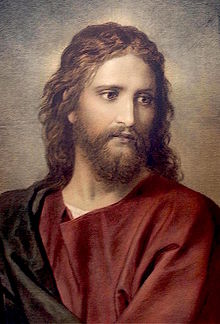Michael H. Hart
Jump to navigation
Jump to search
Michael H. Hart (born 27 April 1932) is an American astrophysicist and author, most notably of The 100: A Ranking of the Most Influential Persons in History.
Quotes
[edit]- My choice of Muhammad to lead the list of the world's most influential persons may surprise some readers may be questioned by others, but he was the only man in history who was supremely successful on both the religious and secular levels.
- about Muhammad, The 100: A Ranking of the Most Influential Persons in History, p.3

- Newton's achievements in optics alone would probably entitle him to a place on this list; however, they are considerably less important than his accomplishments in pure mathematics and mechanics. His major mathematical contribution was his invention of integral calculus, which he probably devised when he was twenty-three or twenty-four years old. That invention, the most important achievement of modern mathematics, is not merely the seed out of which much of modern mathematical theory has grown, it is also the essential tool without which most of the subsequent progress in modern science would have been impossible. Had Newton done nothing else, the invention of integral calculus by itself would have entitled him to a fairly high place on this list.
- about Isaac Newton, The 100: A Ranking of the Most Influential Persons in History, p.13
- The impact of Jesus on human history is so obvious and so enormous that few people would question his placement near the top of this list. Indeed, the more likely question is why Jesus, who is the inspiration for the most influential religion in history, has not been placed first. There is no question that Christianity, over the course of time, has had far more adherents than any other religion. However, it is not that relative influence of different religions that is being estimated in this book, but rather the relative influence of individual men. Christianity, unlike Islam, was not founded by a single person but by two people —Jesus and St. Paul— and the principal credit for its development must, therefore, be apportioned between those two figures.
- about Jesus, The 100: A Ranking of the Most Influential Persons in History, p.17
- It has often been said that if Christ were to return to earth, he would be shocked at many of the things which have been done in his name, and horrified at the bloody fights between different sects of persons who call themselves his followers.
- about Jesus, The 100: A Ranking of the Most Influential Persons in History, p.26
- Buddha and Confucius have had an approximately equal influence upon the World. Both lived at about the same tme, and the number of their adherents has not been too different. I have chosen to place Buddha before Confucius for two reasons: first, the advent of Communism in China seems to have greatly diminished Confucius influence; and second, the failure of Confucianism to spread widely outside of China indicates how closely the idea of Confucius were grounded in pre-existing Chinese attitudes.
- about Buddha, The 100: A Ranking of the Most Influential Persons in History, p.26
- But Confucianism was not merely the official philosophy of the Chinese administration. Confucius ideals were accepted by the majority of the Chinese people, and for over two thousand years deeply influenced their life and thought.
- about Confucius, The 100: A Ranking of the Most Influential Persons in History p. 29/30
External links
[edit]- Michael H. Hart: The 100: A Ranking of the Most Influential Persons in History, Carol Publishing Group Edition, New York, (first edition of 1978), 1993
